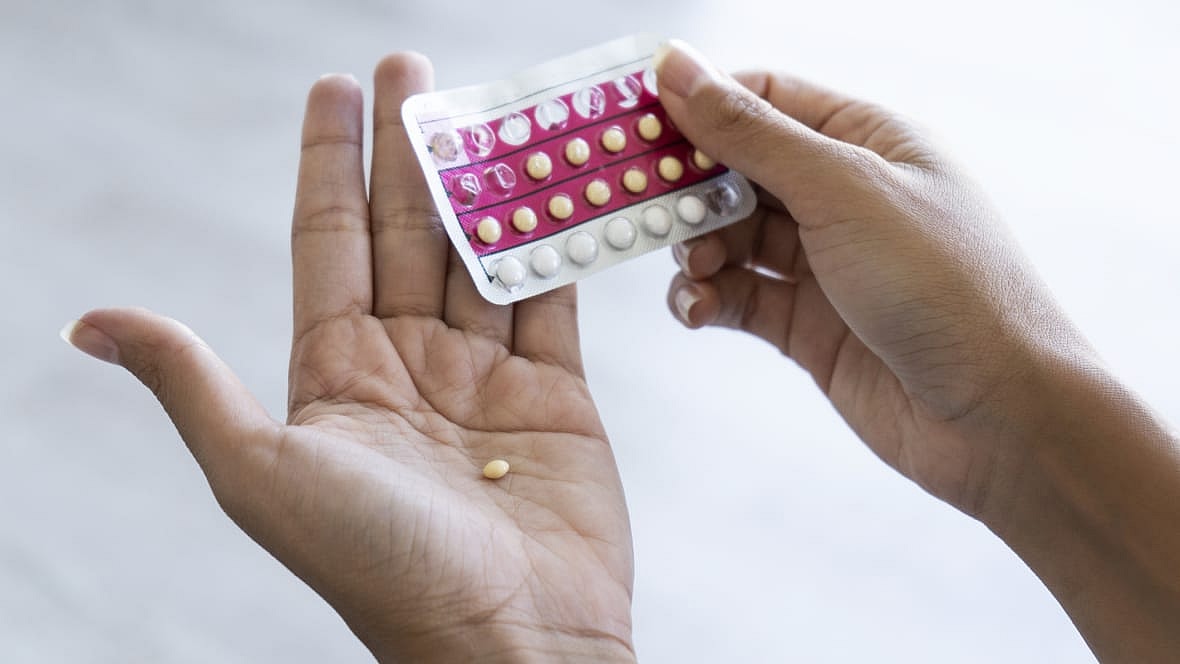If you are a hormonal birth control user who relied on the advice that lower hormones in your chosen method meant a decrease in cancer risks, particularly breast cancer, you may want to reconsider.
While for decades we’ve understood that birth control methods containing both estrogen and progestogen — synthetic versions of female hormones — can lead to increased risks for developing cancer, many have come to believe contraceptives containing just one hormone or an extremely low amount are safer. However, a new study published Tuesday in the journal PLOS Medicine found that, across all hormonal birth control methods, the risk of developing breast cancer is roughly the same.

The study found that the risk of being diagnosed with breast cancer was roughly 20% to 30% higher in those who used hormonal birth control compared to those who did not — regardless of whether the individual used or recently used a two-hormone combination birth control pill, progestogen-only pills, or hormonal IUDs.
Though the findings may raise concerns, as more people across the country facing strict bans on abortions are flocking to their doctors for birth control, physicians do not want this new information to cause panic.
“I really don’t want women to be seeing this and thinking, ‘Oh, no, I’ve got to come off the progestogen-only pill,'” Gillian Reeves, co-author of the new study and director of the Cancer Epidemiology Unit at the University of Oxford, said in an interview with NBC news.
Reeves further noted that there will always be risks associated with whatever hormonal contraceptive a person uses.
“These newer types that hadn’t been so well studied, what it does look like is that they are certainly no worse,” she said.
Other medical providers also warn against reading too far into the results of the new study when the risk of developing any form of cancer is often not solely based on one factor. On average, women have a 1-in-8 chance of developing breast cancer during their lifetimes. Risks associated with developing cancer can also correlate with family history, environment, diet, lifestyle and more.
Dr. Rachel Urrutia, an associate professor of obstetrics and gynecology at the University of North Carolina School of Medicine, told NBC News it’s hard to conclude “with certainty that hormonal contraception raises the risk of cancer without conducting a randomized controlled trial.”
The study analyzed the prescription records of women on hormonal contraceptives based in the U.K., finding that nearly 9,500 of those women were diagnosed with breast cancer between 1996 and 2017, while over 18,000 were not.
Researchers reportedly also combined the results of their findings with findings from 12 different studies that also looked at the risk of progestogen-only birth control methods.
“Anything that you give to a woman that disrupts her normal menstrual cycle has the potential to change her exposure to both of these sex hormones and, in doing so, it may well change her risk of hormonally sensitive cancers,” Urrutia said.
Similarly, anything that can potentially increase the risk of breast cancer among women is reason for concern. According to the Centers for Disease Control and Prevention, breast cancer is the leading cause of cancer-related death in women, and Black women who are diagnosed with breast cancer have a 41% chance of dying from the disease.
With those statistics in mind, the best advice continues to be learning your family history and speaking with your doctor about your personal risk level.
TheGrio is FREE on your TV via Apple TV, Amazon Fire, Roku, and Android TV. TheGrio’s Black Podcast Network is free too. Download theGrio mobile apps today! Listen to ‘Writing Black’ with Maiysha Kai.

